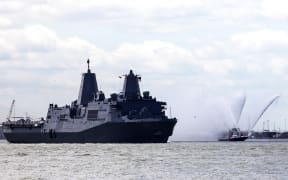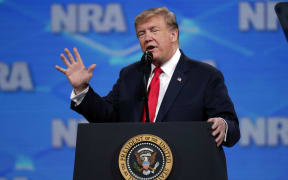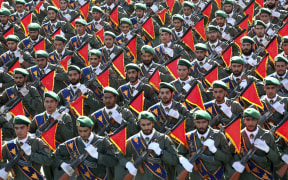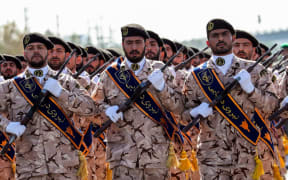The US state department has ordered the departure of "non-emergency employees" from Iraq, amid rising tensions between the US and Iraq's neighbour Iran.

Photo: 123RF
Staff at the embassy in Baghdad and the consulate in Irbil must leave as soon as possible on commercial transport.
Meanwhile, the German and Dutch armies have suspended training Iraqi soldiers.
The US military said on Tuesday that the threat level in the Middle East had been raised in response to intelligence about Iran-backed forces in the region.
It contradicted a British general who had said there was "no increased threat".
Chris Ghika, deputy commander of the global coalition against the Islamic State group, had told reporters that measures in place to protect US forces and their allies from Iran-backed militias in Iraq and Syria were "completely satisfactory".
Why is the US evacuating staff?
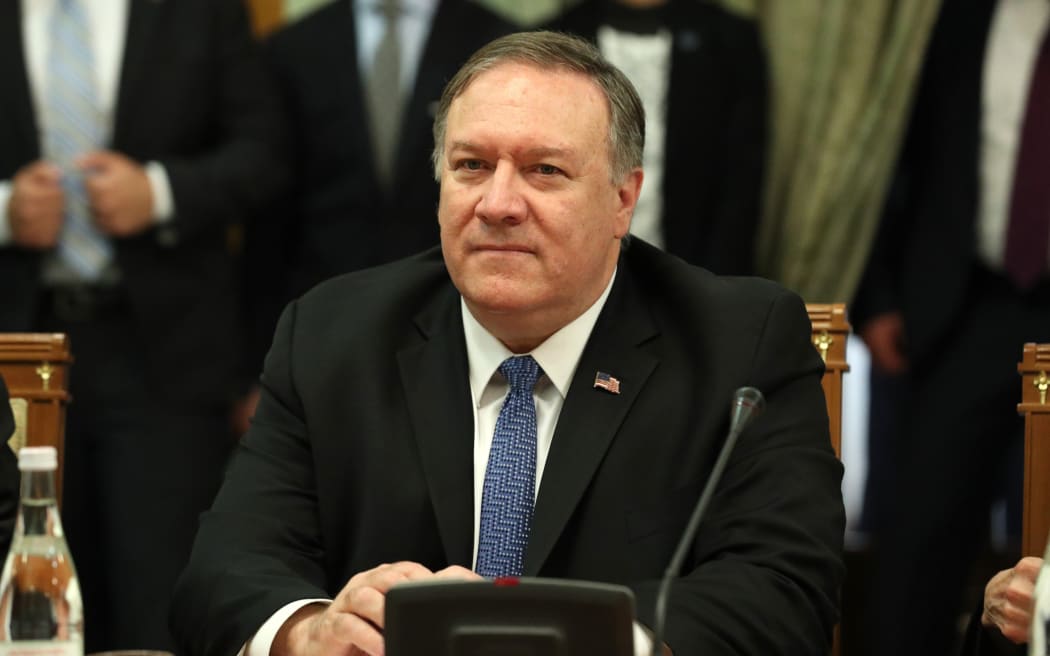
US Secretary of State Mike Pompeo. Photo: AFP
A state department spokesman said: "Ensuring the safety of US government personnel and citizens is our highest priority and we are confident in the Iraqi security services' [ability] to protect us.
"But this threat is serious and we want to reduce the risk of harm."
The US military's Central Command also talked of "identified credible threats available to intelligence from US and allies" when it publicly disputed Mr Ghika's comments in a Pentagon briefing on Tuesday.
Central Command, in co-ordination with the global coalition's Operation Inherent Resolve (OIR), had "increased the force posture level for all service members assigned to OIR in Iraq and Syria", spokesman Capt Bill Urban said.
"As a result OIR is now at a high level of alert as we continue to closely monitor credible and possibly imminent threats to US forces in Iraq," he added.
The UK Ministry of Defence stressed that Mr Ghika's "sole focus" was the enduring defeat of IS, and that he had made clear there were a range of threats to forces in the region that required very robust protection measures.
Germany's defence ministry said on Wednesday that the German army had suspended its training programmes in Iraq.
A spokesman said the ministry had received indications of potential attacks supported by Iran, but that there was no specific threat to the 160 German troops involved in the training operation.
The Dutch defence ministry said Dutch soldiers had also suspended their training mission due to an unspecified threat, local media reported.
Do we know anything about the alleged threat?
Not yet. But Reuters news agency cited Iraqi security sources as saying that during a visit to Iraq earlier this month US Secretary of State Mike Pompeo told Iraqi commanders that intelligence showed Iran-backed paramilitary fighters were positioning rockets near bases housing US troops.
"The message from the Americans was clear. They wanted guarantees that Iraq would stop those groups threatening US interests," one of the sources was quoted as saying.
"They said if the US [was] attacked on Iraqi soil, it would take action to defend itself without co-ordinating with Baghdad."
Iraq Prime Minister Adel Abdul Mahdi said on Tuesday that its security forces had not observed "movements that constitute a threat to any side".
Paramilitary groups trained, armed and advised by Iran have played an important role in the battle against IS in Iraq. They were formally incorporated into the Iraqi security forces last year, but continue to operate semi-independently.
Spokesmen for two of the groups told Reuters that the talk of threats to US forces was "psychological warfare" by Washington.
The US does not have a diplomatic presence in Iran. The Swiss embassy represents US interests in the country.
Why have US-Iran tensions escalated?
It was also reported on Tuesday that US investigators believed Iran or groups it supported had used explosives to damage four tankers off the coast of the United Arab Emirates on Sunday. Large holes were found in the hulls of the tankers, but no evidence has been released showing a link to Iran.
Saudi Arabia meanwhile said that drone attacks on two oil pumping stations by Yemen's Houthi rebel movement, which is supported by Iran, had forced it to temporarily shut the main East-West Pipeline.
Earlier this month, the US sent an aircraft carrier and B-52 bombers to the Gulf.
There were repeated warnings from Washington justifying the military build-up, based on what Mr Pompeo described as an "escalation" in activities by Iran.
It came after the US ended exemptions from sanctions for importers of Iranian oil.
President Donald Trump reinstated the sanctions last year after abandoning a landmark nuclear deal between Iran and six world powers.
Iran has vowed to overcome the measures, but its economy is sliding towards a deep recession and the value of its currency has plummeted.
- BBC

